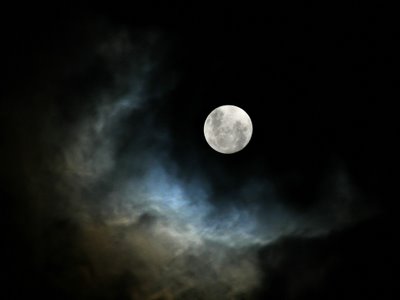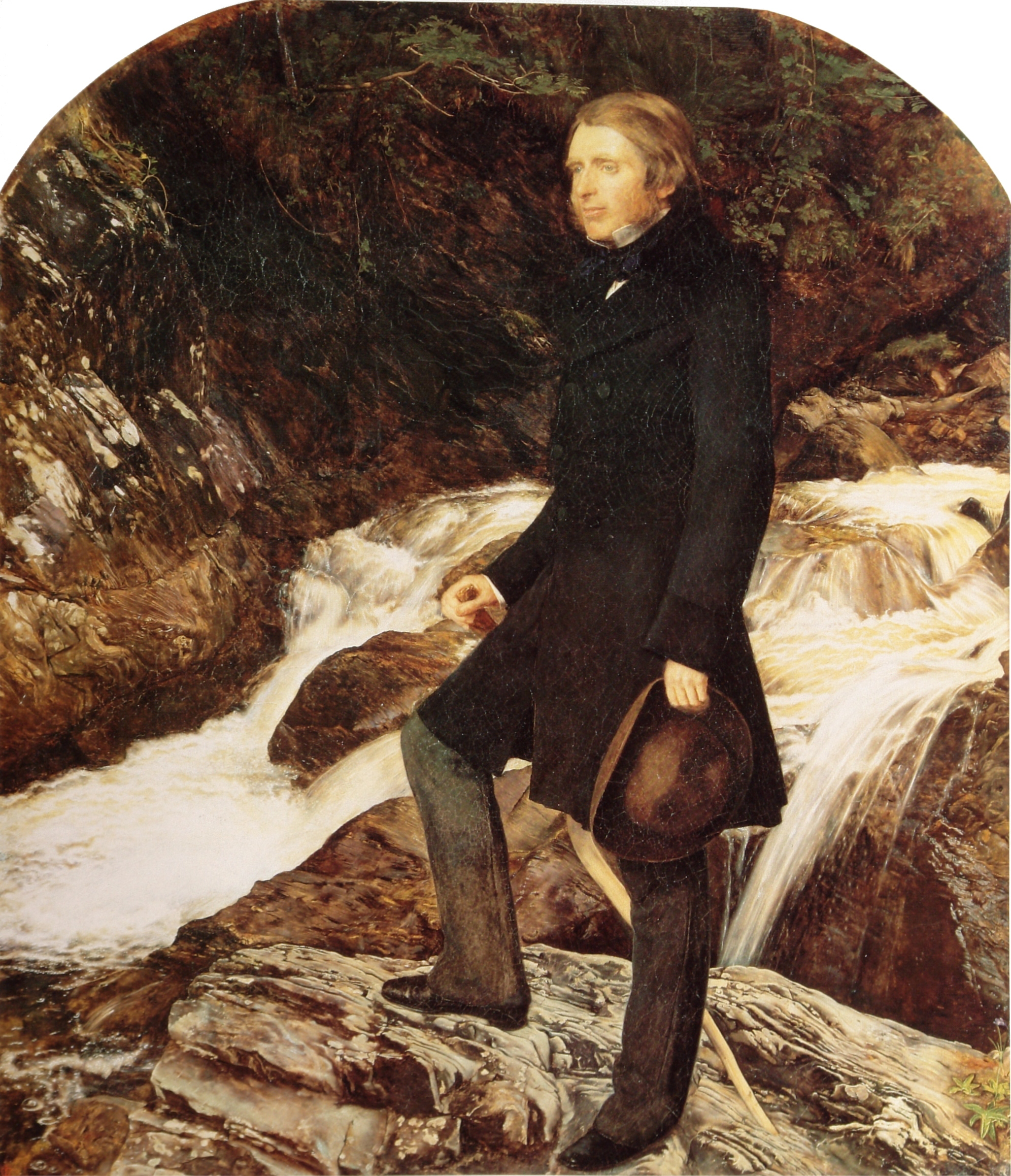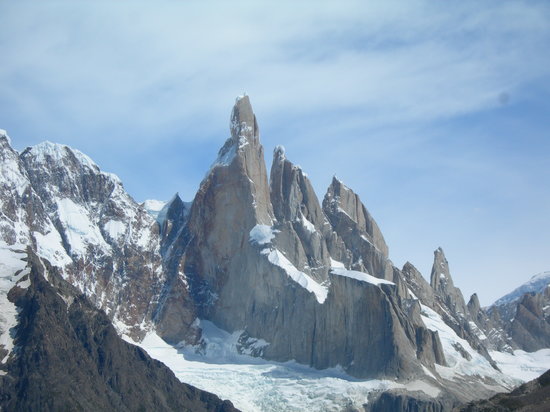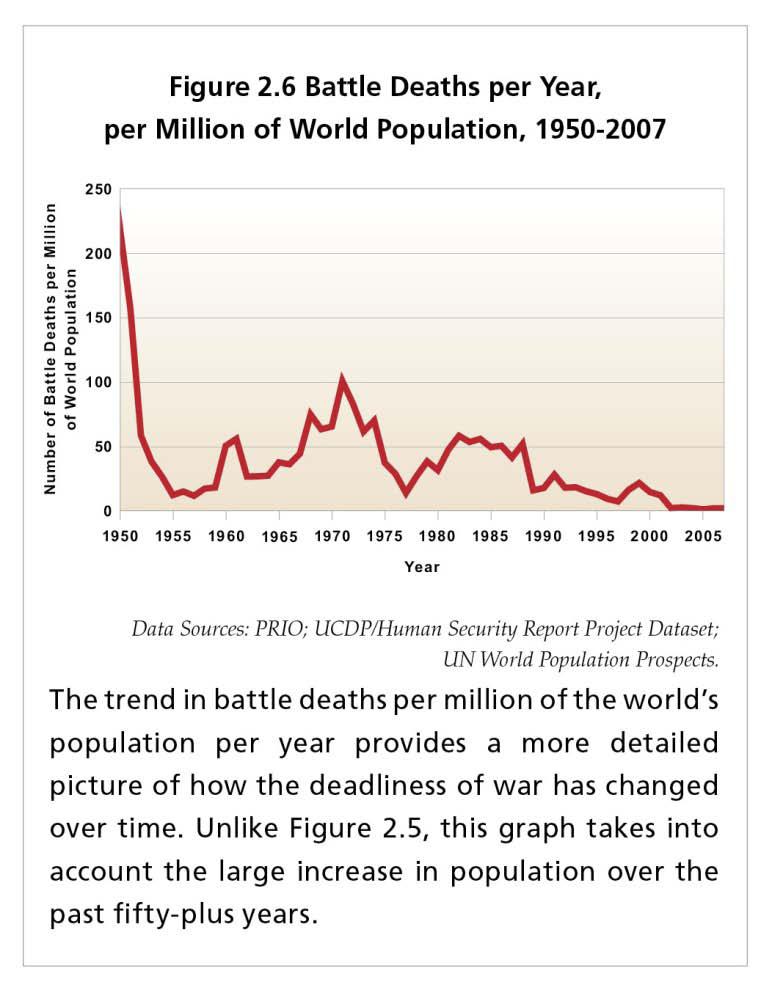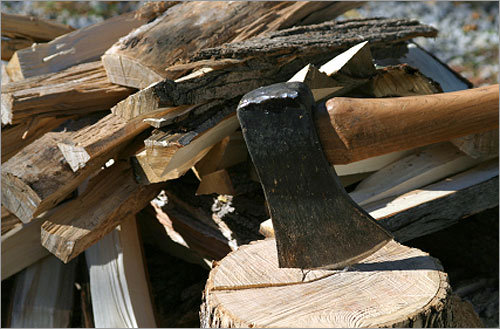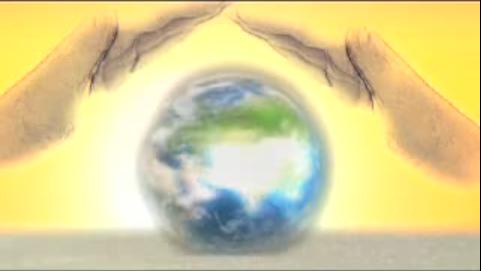

|
Moonlight in the Pines
|
1 February 2010
|
||||
|
Justin E. H. Smith on Reincarnation: I have often felt like saying to adults: quit worrying about the afterlife. This already is the afterlife...you ghost-walking former children! Then I want to ask them: Why do you worry about whether your soul will exist 100 years from now? When is the last time you worried about whether it existed 100 years ago? When is the last time your presumed nonexistence in 1909 bothered you in the slightest? Could it be meaningful to ask what it was like to be me in 1909? (I don't mean what would it have been like had I been alive in 1909. I mean what was it like.) My sense is that young children would, if asked, have a different understanding of what is at issue in this question than adults would, and that it is when we come to think of the question as adults do that our elanguescence begins, and that our primary vital experience in childhood is reduced to an echo.... It seems to me that talk of life-after-death is pure speculation, born of fear, whereas talk of life-before-birth is rooted in our experience of this life. read the full article on Three Quarks Daily |
2 February 2010
|
||||
|
A Winter Night: It has been snowing. Past midnight, drunk on purple wine, you leave the gloomy shelters of men, and the red fire of their fireplaces. Oh the darkness of night. Black frost. The ground is hard, the air has a bitter taste. Your
stars make unlucky figures. Bitter snow and moon. A red wolf, that an angel is strangling. Your trouser legs rustle, as you walk, like blue ice, and a smile full of suffering and pride petrifies your face, and your forehead is white before the ripe desire of the frost; or else it bends down silently over the doze of the night watchman, slumped down in his wooden shack. Frost and smoke. A white shirt of stars burns on your clothed shoulders, and the hawk of God strips flesh out of your hard heart. Oh the stony hill. The cool body, forgotten and silent, is melting
away in the silver snow. — Georg Trakl, born this day in 1887 (tr Robert Bly & James Wright) Trakl enlisted in WW I as a medic, transformed the grotesque images of war into stark poems, succumbed to the shock and horror at the tender age of 27. |
3 February 2010
|
||||
|
“We’re not here to earn God’s love, we're here to spend it!” “You know, for years I taught Absurdiveness Training, and at the end everyone received Absurdification from the Swami. Well, I have decided to reinstitute that policy. If you’ve ever been struck by enlightening and became fooly-aware, committed a random act of comedy that contributed to someone else’s fool-realization, or otherwise added to the laugh force on the planet — you are absurdifiable!” |
4 February 2010
|
||||
|
Fringe benefits of failure “If you choose to use your status and influence to raise your voice on behalf of those who have no voice; if you choose to identify not only with the powerful, but with the powerless; if you retain the ability to imagine yourself into the lives of those who do not have your advantages, then it will not only be your proud families who celebrate your existence, but thousands and millions of people whose reality you have helped change. We do not need magic to change the world, we carry all the power we need inside ourselves already: we have the power to imagine better.” — J K Rowling, Harvard Commencement speech |
5 February 2010
|
||||
|
Quaker Worship: The Metaphor Moves in Two Directions
|
6 February 2010
|
||||
|
Self-directed, Other-directed, and Imaginary-other ...an insight from my introspection about what makes me tick: |
7 February 2010
|
||||
|
When first the wrath of heaven o’erwhelmed
the world, – from the notebook of 9-year-old John Ruskin ‘Every increased possession loads us with new weariness.’ — John Ruskin, precocious poet, artist, essayist, and social reformer, born this day in 1819 |
8 February 2010
|
||||
|
What no one has dared to wish for |
9 February 2010
|
||||
|
Too good to be true? The news seems almost too good to believe. Four years ago, the first Human Security Report (fr Simon Fraser Univ) documented a long (centuries) decline in the violence of warfare and crime, continuing at an accelerating pace in recent decades. The a href="http://www.humansecurityreport.info/2009Report/2009Report_Complete.pdf"> new (12/09) Report puts war deaths in a context of improved sanitation and vaccination that are lessening suffering in the Third World at a galloping rate. “No one, of course, is suggesting that war is good for people’s health,” says Human Security Report Project Director, Andrew Mack. “But the reality is that the death toll in most of today’s wars is too small to reverse the steady decline in peacetime mortality that developing countries have been experiencing for more than thirty years.” The thrust of this article is that by focusing our attention on high-profile conflicts involving first-world powers, we lose sight of the fact that death rates have been plummeting in Africa and developing areas of Asia. Are Mack’s estimates of wartime deaths too low to be believable? I don’t have the expertise to know. I find the trends over time to be plausible and inspiring. For all of human history, organized killing has been a standard method of settling conflicts. Now war is unacceptable to an increasing number of people, and we are making steady progress toward its eradication. |
10 February 2010
|
||||
|
Vor deinen Thron tret’ ich hiemit The secret of artistic creation was never more strikingly exemplified
than in the so-called final chorale of ‘The Art of the Fugue’.
When Bach conceived this musical miracle, his senses were already half
extinguished: out of his blindness he dictated it to his son-in-law, Altnikol. Beauty, expression, spirit, intellect—the components of
the perfect art-work reward our contemplation of this masterpiece.
The euphony of the four-part writing is a treat to the senses; the
periodically interpolated chorale phrases are like beams of light to the
spirit; the proportions and inner relations of the work produce a
feeling of completest freedom. Whether one plays this music for
string quartet, on the organ, or with four wind instruments, the wonder
of it remains the same; it seems the very self-revelation of Music.
|
11 February 2010
|
||||
|
Allow the president to invade a neighboring nation, whenever he shall
deem it necessary to repel an invasion, and you allow him to do so
whenever he may choose to say he deems it necessary for such a purpose —
and you allow him to make war at pleasure. ‘...he is also mindful as president of the
United States not to do anything America will never be destroyed from the outside. If we falter and
lose our freedoms, it will be because we destroyed ourselves. Any people anywhere, being inclined and having the power, have the
right to rise up, and shake off the existing government, and form a new
one that suits them better. This is a most valuable — a most sacred
right — a right, which we hope and believe, is to liberate the world.
Am I not destroying my enemies when I make friends of them? |
12 February 2010
Gala Contemplating the Mediterranean Sea |
||||
|
One human life As one contemplates the life and work of Georges Simenon, the question inevitably arises: Was he human? In his energies, creative and erotic, he was certainly extraordinary. He wrote some 400 novels, under a variety of pseudonyms, as well as countless short stories and film scripts, and toward the end of his life, having supposedly given up writing, he dictated thousands of pages of memoirs. He could knock off a novel in a week or 10 days of manic typing — he never revised, as the work sometimes shows — and in Paris in the 1920s he is said to have broken off an affair with Josephine Baker, the expatriate American chanteuse and star of La Revue Nègre, because in the year he was with her, he was so distracted by his passion for her that he had managed to write only three or four books. from an
article by John Banville in LA Weekly |
13 February 2010
|
||||
|
The same. Really. Exactly the same. The least-written about of the bizarre, counter-intuitive features of quantum mechanics is the treatment of indistinguishable particles. We are used to the idea that two electrons or two photons are the same in a way that is more the same than identical twins. There is literally no difference if you substitute one for the other. QM is about probabilities, so you might expect the probabilities for [Photon #1 to be located at A and Photon #2 to be located at B] to be constrained to be identical to the probability for [Photon #2 to be located at A and Photon #1 to be located at B]. The new behavior comes from the fact that QM deals with an entity called amplitude rather than directly with probability. You then calculate the probability by squaring the amplitude. It is the amplitude that remains the same on interchange of two photons. Think about the case where A and B are in the same place. The amplitude for Photon #1 to be at A and Photon #2 to be at A is doubled because of interchange. Square that to get the probability, and the probability is multiplied by not just 2 but 4. The consequence is that it is extra-likely that two photons will be right on top of one another. Even more likely that 3 will be right on top of one another, and the more photons you have in one place, the more likely that the next one will pile on. This is the deep reason why lasers work. Many photons pile up into exactly the same state, and travel together as one. Electrons are indistinguishable in a different way. Electrons have odd parity, in contrast to the even parity of photons. When you interchange two electrons the amplitude gets multiplied by minus 1. That means the amplitude of [Electron #1 at A and Electron #2 at B] is the negative of [Electron #1 at B and Electron #2 at A]. Again, the two probabilities are the same, because the probability is the square of the amplitude, and the square of a negative number is the same as the square of its inverse. But what does that mean for the amplitude of [Electron #1 at A and Electron #2 at A] compared to [Electron #2 at A and Electron #1 at A]? One has to be the negative of the other. But they are the same situation. How can they be the same and also the negative of one another? The only number that is its own negative is zero. So the amplitude for two electrons to be in the same state is zero. No two electrons can be in the same state. This has profound consequences. The electrons in solid materials keep
apart from one another not so much because of their electric charge; a
much stronger force keeping them apart comes from QM
indistinguishability, and the constraint that no two electrons can
occupy the same state. Electrons in a solid keep a polite distance. The
first one to come along gets the lowest energy state. The next one also
takes the lowest energy state but distinguishes itself from the first by
spinning in the opposite direction. But the third and fourth have to
find much more energy for themselves. Electrons 5 and 6 have more energy
yet, and so it continues, the energy piling up much, much higher than it
would if these electrons just had an average amount of energy for, say,
an environment at room temperature of 70o. — Josh Mitteldorf |
14 February 2010
|
||||
|
Any morning Just lying on the couch and being happy.
People who might judge are mostly asleep; they can’t
Little corners like this, pieces of Heaven
Later in the day you can act like the others. ~ William Stafford |
15 February 2010
|
||||
|
I don’t know how I know, I just know, OK? Q Where does this other knowledge come from? — Hartosh Singh Bal interviewing T Padmanabhan in Open Magazine |
16 February 2010
|
||||
|
Each year that the mainstream press fails to question their
sources, We need a new breed of politician who see ridicule by the organs of propaganda as a badge of honor, who laugh derisively at these phonies. It may seem impossible to bypass the press bottlenecks. But it isn’t. We need people to start thinking in new ways. |
17 February 2010
|
||||
|
Commitment “No one who has lived even for a fleeting moment for something other than life in its conventional sense and has experienced the exaltation that this feeling produces can then renounce his new freedom.” – André Breton, born this day in 1896 «Deux mains qui se cherchent c’est assez pour le toit de demain.» Video - Minute of Wisdom |
18 February 2010
|
||||
|
Some things don’t change It is my nature that It is my eternity that — Mechtild of Magdaburg (1210-1282) I cannot dance, Lord, unless You lead me. |
19 February 2010
|
||||
|
Thermodynamics reduced to statistics One of the triumphs of 19th Century physics was the thermodynamic laws involving entropy. Entropy has to do with the availability of energy. Its applications include heat engines and chemical equilibrium. Chemical reactions are driven forward if they release energy, and this is more true at colder temperatures, in a way that can be precisely quantified. Another triumph was the atomic theory. Emerging from the 19th Century, there was a consensus that all matter is made of atoms, that atoms come in different types corresponding to the chemical elements, and that all of chemistry could be explained by interactions and groupings of atoms. If both theories are correct, then the two theories must be connected. Thermodynamic behavior (including chemistry) should be predictable from physics of atoms. Of course, you have to think about the behavior of huge numbers of atoms. Ludwig Boltzmann, born this day in 1844, reformulated the ideas of Clausius about entropy and usable energy in terms of probability and randomness. He showed how the laws of thermodynamics could be formulated and proven, using statistics, starting with the physics of atoms. The central insight, enabling Boltzmann to translate Thermodynamics into the language of Statistical Mechanics, was that the entropy of a system corresponds to a measure of probability of that system: how many different ways can it be realized in atomic configurations, all of which look the same to a macroscopic observer? The equation was inscribed on Boltzmann’s tombstone. |
20 February 2010
|
||||
|
Prayer I wish the wolf good success in providing meat for her cubs. — Josh Mitteldorf |
21 February 2010 |
||||
|
A Glance Behind the Curtain We see but half the causes of our deeds, From one stage of our being to the next We trace the wisdom to the apple’s fall, — James Russell Lowell, born this day in 1819 |
22 February 2010
|
||||
|
An idea that is both radical and within our grasp Under the rules of the Fed, banks have a unique power to create credit. They do this for private gain. Why not for public good? North Dakota is the only state with a state bank. North Dakota is the only state with a budget surplus this year. For those of us who do not live in North Dakota, why not create state banks? Credit can be used to jumpstart infrastructure repairs and new technological ventures. Profits can be used to close the state budget gaps. If we had used the $700 billion [2008 TARP
funds] to create a
new financial institution, allowed it to lever 10 to 1, which is very
modest compared to the 30 to 1 that we were doing, 10 to 1 would have
generated $7 trillion of new lending capacity, far in excess of what our
country needs. So the issue here is not about lending. It’s really about
saving the bankers. And what we confused was saving the banks versus
saving the bankers and their shareholders. Read a well-documented, insightful and inspiring piece by Ellen Brown in Yes Magazine. |
23 February 2010
|
||||
|
Ferocious music State interference with an artist’s creative process generally doesn’t work either for the state or for the artist. The Soviet Union was demanding movie music. Prokofiev wanted to write complex and deeply moving masterpieces. In Prokofiev’s case, it worked out. His greatest music is marvelously accessible, with universal appeal. The Scythian Suite begins ferociously, fades, echoes, then gradually
disappears. |
24 February 2010
|
||||
|
“Faith and doubt belong together; they govern each other like inhaling and exhaling.” — Hermann Hesse, from The Glass Bead Game |
25 February 2010
|
||||
|
Borges and me “I remember, too, the personal Big Bang I experienced when, on a tropical morning, probably rainy (one always remembers oneself reading while it’s raining), I first read that brief page from The Maker titled ‘Borges and Me’, in which Borges, for the first but not the last time, shows himself to be so definitively Borgesian and blurs the line between author and character and – at least so it seemed to me – also muddles the identity of the reader. Because if in it Borges confesses ‘I don’t know which of the two of us is writing this page,’ then how could one be sure that a spore of Borges wouldn’t detach itself from the paper and infect the reader and – a second ‘and me’ – that the reader wouldn’t suddenly also be Borges? The person to whom things happen or who writes them down or both? It doesn’t matter... “The wall that houses the genius of a librarian, blind and polymorphic and perverse, who recommends so many things all at once and who’s convinced that salvation and paradise will always live inside a book. Inside a book that contains the whole universe.” — from a Granta essay by Rodrigo Fresán, tr Natasha Wimmer Eager, curious, casual, with no other law than fulfillment and the immediate indifference that ensues, he walked the varied earth and saw, on one seashore or another, the cities of men and their palaces. |
26 February 2010
|
||||
|
I have never been able to analyse the qualities that the audience contributes to a performance. The most important, I think, are sympathy, open-mindedness, expectancy, faith, and a certain support to your effort. I know that my career could not have been what it is without all these things, which have come from many people. The knowledge of the feelings other people have expended on me has kept me going when times were hard. That knowledge has been a responsibility, a challenge, and an inspiration. It has been the path to development and growth. The faith and confidence of others in me have been like shining, guiding stars. Marian Anderson, born this day in 1897, did for classical music what Jackie Robinson did for baseball. To get where she got, she had to be not just ‘as good as’ the most successful white sopranos — she had to be above criticism, in two senses of the phrase. Her performance had to be impeccably flawless, (especially in diction, in 4 different languages). and she also had to be gracious in the face of insult and abuse. Listen to Marian Anderson sing the aria ‘He shall Feed his Flock’ from Handel’s Messiah (at half speed). “Fear is a disease that eats away at logic and makes man inhuman.” |
27 February 2010
|
||||
|
Scientist and mystic The deepest way to experience Mystery is not to ogle or swoon but to engage the full power of the focused intellect and drill to Mystery's core. — Josh Mitteldorf |
28 February 2010
|
